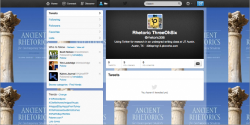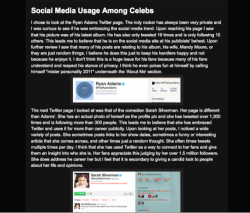
As a teacher a generation older than most of my students, I begin to increasingly find myself in the role of “digital immigrant” to their “digital native” status. Most of us tend to be more familiar with technologies of our youths, inevitably falling behind the curve a bit as new media resemble the ones of our earlier days less and less.




